The 2021-22 candidates answer why they’re running and more
Carpintero de Sydney | Editor de noticias
Introducing the ASWOU candidates running for office for 2021-22. Voting begins on April 19 at 5 p.m., and Western students have until April 23 at 5 p.m. to submit their ballots on Engage. Nominees answer the question, “What plans do you have for Western?” Read even more about each candidate in our online issue at wou.edu/westernhowl.
For students interested in asking the candidates questions, ASWOU is hosting Candidate Forums on April 14 and April 21 via Zoom from 6:30 to 8 p.m.. The Zoom link is available on Engage.

Logan Jackson
Pronouns: She/Her/Hers
Year: Junior
Major: Public Policy and Administration
Position: President (2021-22) and Vice President (Spring 2021)
Why are you running?
I am running for these positions because I know that I can make a positive impact on WOU as a whole. I’ve been involved in leadership for most of my school career and I believe that those past experiences have equipped me with the tools needed to pinpoint problems and implement solutions in solving them. I believe that I have been able to view WOU in a different perspective ⏤ as a Black woman who has held leadership positions within housing, ASWOU clubs, as well as being a student athlete, I’ve seen many things within the institution that could use improvements. I’m a firm believer in if you don’t like how something is being done and there is an opportunity for you to get involved, then you need to step up and be the change that you want to see ⏤ and that is what I’m doing.
What plans do you have for Western?
My main focuses will be addressing the inequalities present here at WOU involving race, sexuality and economic status as well as diving deeper into the lack of support our minority groups have here on campus. During such (a) divisive time in our nation, the least we can do as a university is create a space where students not only feel safe physically, mentally and emotionally, but also genuinely feel supported by the administration, staff/faculty and their peers.
What qualifies you to run for this position and help make Western a stronger community?
As I previously stated, I have been involved in leadership for my entire school career, from middle school to college in a variety of different environments all of which required attention in different areas. I believe that those past experiences have equipped me with the tools needed to pinpoint problems and implement solutions in solving them.
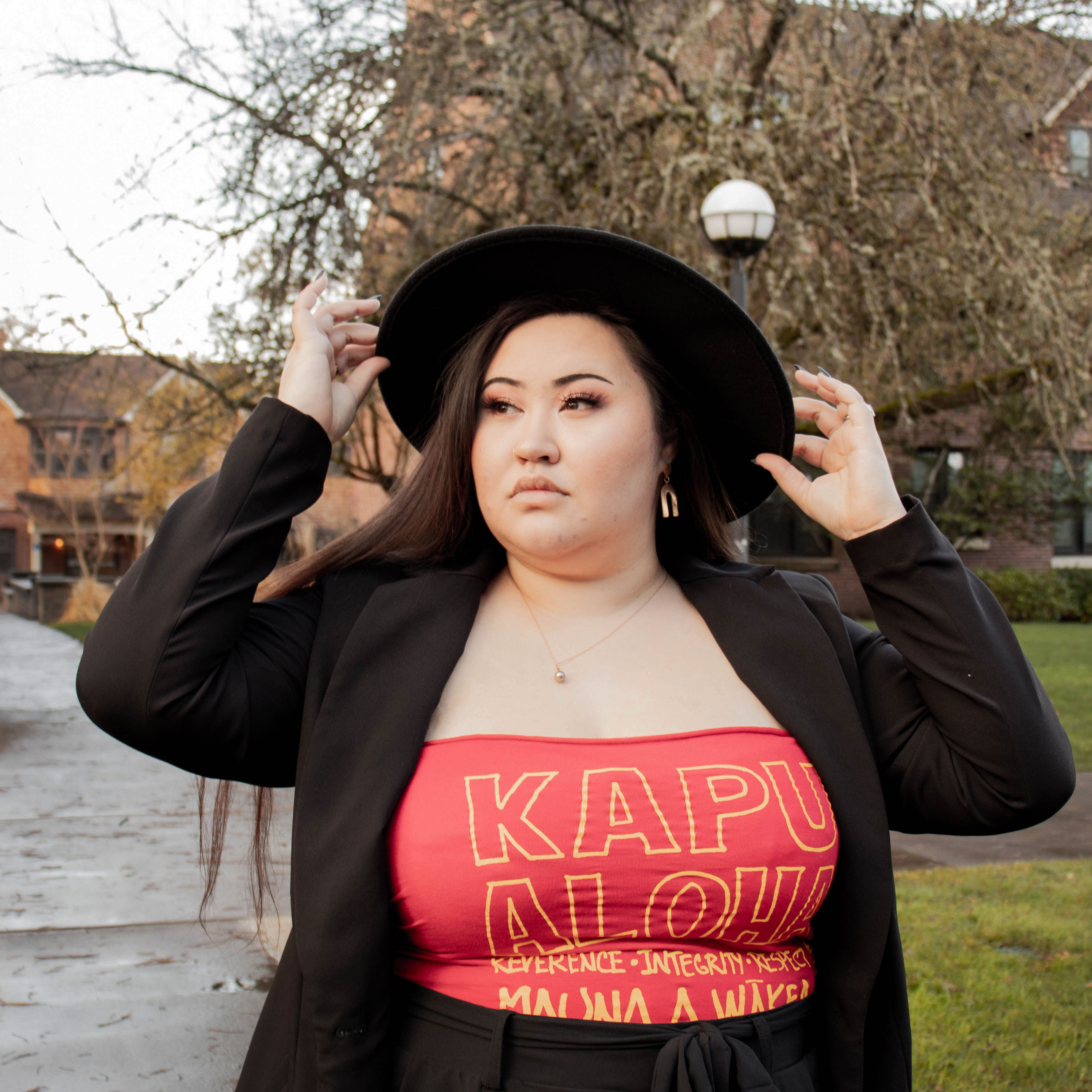
Makanaohaililani Johnson-Waikiki
Pronouns: She/Her/Hers
Year: Junior
Major: Communication Studies
Position: President (2021-22)
Why are you running?
As a woman of color I have dealt with discrimination, bashing, harassment, racism and misogyny. I believe it is a leader’s responsibility to give others the ability to shine by holding spaces of power and opening them to everyone. As your president I intend to use my position to hold the space and open it to students like me who have felt like they didn’t belong, they weren’t safe, they weren’t welcome, they weren’t respected, like they did not have a voice. We have extraordinary potential on this campus, if all students’ voices are heard in the spaces of power. Because we are powerful together.
What plans do you have for Western?
As a native Hawaiian I hold strong values of community, family and teamwork. As this institution’s first Native Hawaiian president, I plan to create a more inclusive and welcoming culture at WOU that helps everyone feel a sense of community ties, family bonds and togetherness as a team. I will continue championing the Freedom Center and elevating the voices of students of color. I will work to pass legislation that will increase the spaces for BIPOC students and those from marginalized backgrounds to be heard in the conversations that occur in every level of our college experience. I will hold departments accountable for making changes to address discrimination. I will hold administration accountable for their responsibility to ensure that students of color feel safe at WOU. I will work to create a stronger connection between departments across campus and the student body. I will ensure that students are reminded and educated on the power they have to make WOU a safe and inclusive university for everyone.
What qualifies you to run for this position and help make Western a stronger community?
This last year I’ve been involved in ASWOU as the Incidental Fee Committee Chair, I’ve worked alongside other students of color to develop a plan for the WOU Freedom Center ⏤ a resource center and safe space on campus where students of color can be the majority, and I’ve worked closely with the Oregon Students Association to promote students’ needs at the state level. I was a peer advocate with Abby’s House and am currently the Vice President of the Multicultural Student Union. Through these roles I’ve found a drive and passion to change the culture of ASWOU through creating an environment of transparent and open communication, ensuring that students are paid fairly for their jobs on campus, increasing BIPOC representation and addressing the widespread discrimination on our campus.
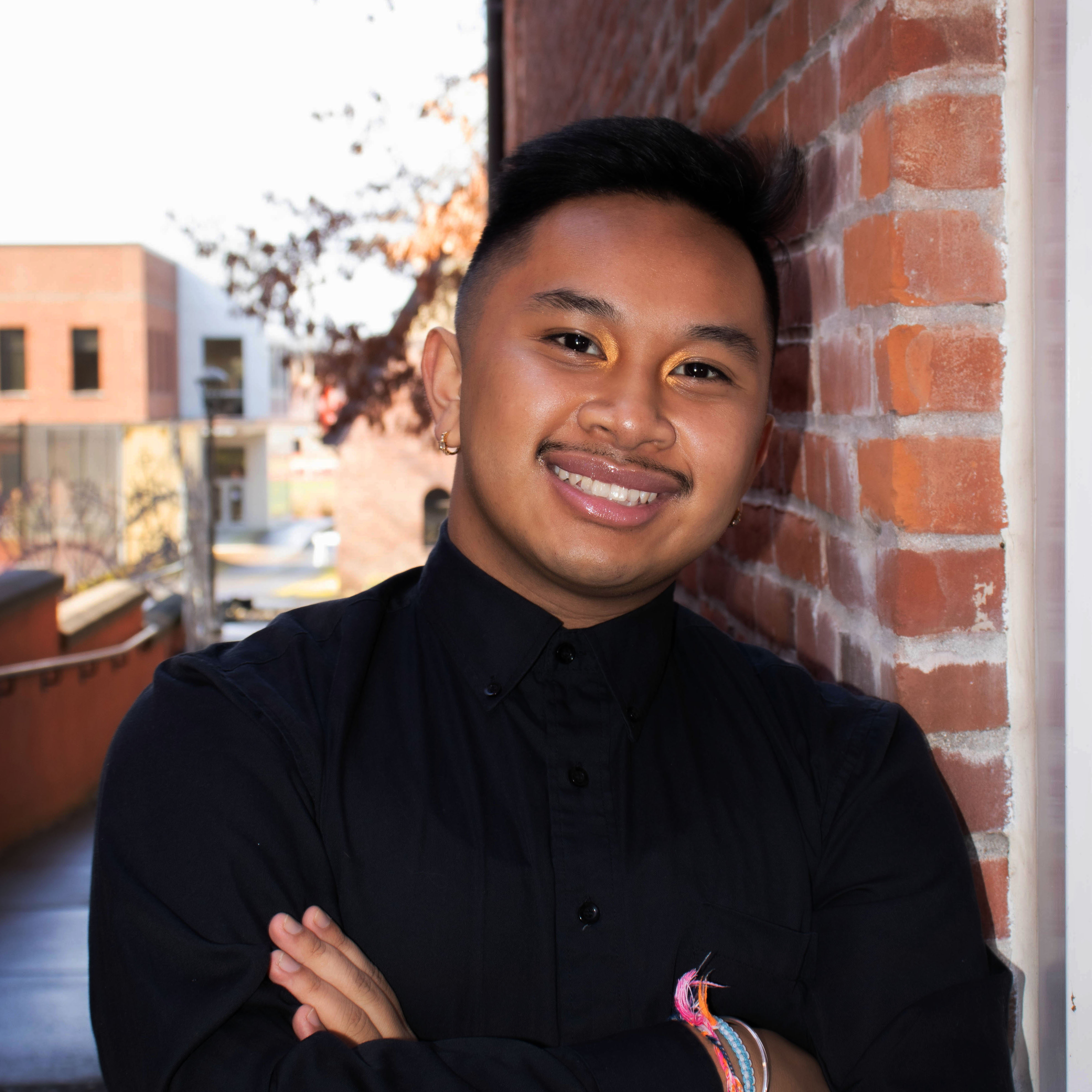
Devin Jay Thongdy
Pronouns: He/Him/His
Year: Junior
Major: Psychology
Position: Vice President (2021-22)
Why are you running?
The reason why I am running for Vice President is to not be an echo in a crowd of underrepresented but a voice that empowers us to push for change, to fight for what is right and do more to help one another. I am a first generation student, first to graduate highschool, first to graduate college next year in my family, came from a family that consisted of my brother, my single mom and me and many more titles and identities I hold. My whole life I had to do more to be where I am now. I did with determination, passion, care and with love. I want to make a change for this campus that not only serves the majority but the minority, the underrepresented, the one (whose) voice gets lost in the crowd. If I am elected for Vice President for the 2021-22 school year, this is what I will do to ensure that we become better and equitable communities.
What plans do you have for Western?
The plans that I have for WOU is to increase accessibility for the student government to the student body. I will increase the connection for ASWOU and student organization to ensure that we have transparency and are meeting students needs. I will get funding and resources for a Freedom Center to ensure BIPOC students have a place to feel safe and seen. I will make every attempt to increase the student wage because every student needs a stable income to be successful in their college journey.
What qualifies you to run for this position and help make Western a stronger community?
The qualities that will help me run for this position (are) that I am very determined, organized, have passion and compassion and many more. I believe these qualities allow me to work hard for what is right but also do it with love and passion for helping others. These will help make WOU a stronger community by always putting the student first and being able to be the voice for them. The Western community itself is filled with people who are also determined and (have) passion for what they want to do. For me running for this position will ensure this community will not be in the shadow and be heard.
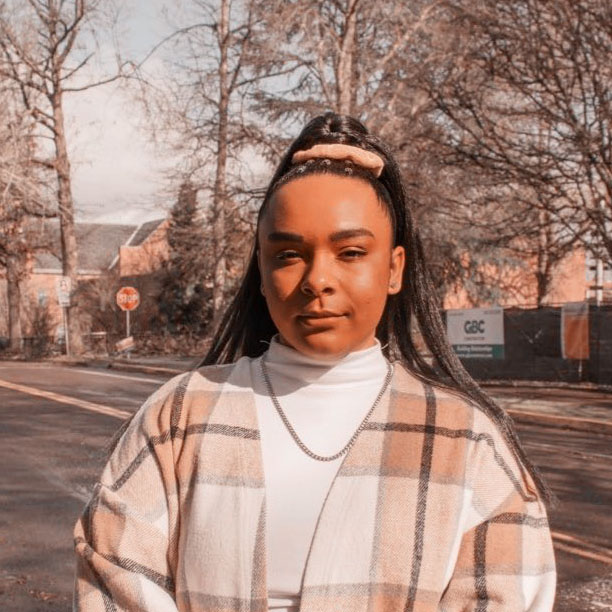
Elizabeth Braatz
Pronouns: She/Her/Hers
Year: Junior
Major: Criminal Justice
Position: Senate President
Why are you running?
I have been involved in leadership since the second week of my first year at college. I have served as the Vice President of Heritage Hall government, Vice President of the Residence Hall Association and I am currently serving as a Resident Assistant. I also serve on the University Diversity and Inclusion Advisory Committee, as well as the University Cultural Competency Advisory Committee. I am running for this position because I am extremely dedicated to listening to students and their voices, and making sure that students have a spot of the table. I am a Black, Hispanic, Alaskan Native Indian, gay woman, so I know how it feels to be left out, unheard and unseen. I will represent this student body to the best of my ability, and make sure that every student feels heard, seen and feels welcomed and loved at this institution.
What plans do you have for Western?
If elected as Senate President for the 2021-22 school year, I will continue my efforts in listening to what students of this university need to feel welcomed, loved, heard and seen. I will continue using my platform to continue the important and necessary conversations that need to be had. I want to ensure that I graduate next year knowing that I worked hard to leave a more welcoming and equitable university that embraces BIPOC members of this campus community, as well every human being regardless of their walk of life.
What qualifies you to run for this position and help make Western a stronger community?
I served as Vice President of Heritage Hall government, Vice President of the Residence Hall Association, Resident Assistant of Barnum Hall, member of University Diversity and Inclusion Advisory Committee, University Cultural Competency Advisory Committee, Ambassador, PLUS Team Peer Advisor and Summer Bridge Peer Advisor. My first year at school I helped create and lead the End Hate March on campus, I am also the founder and creator of the newly implemented Satisfactory/No Credit grading option for the 2020-21 school year. Those are my qualifications.
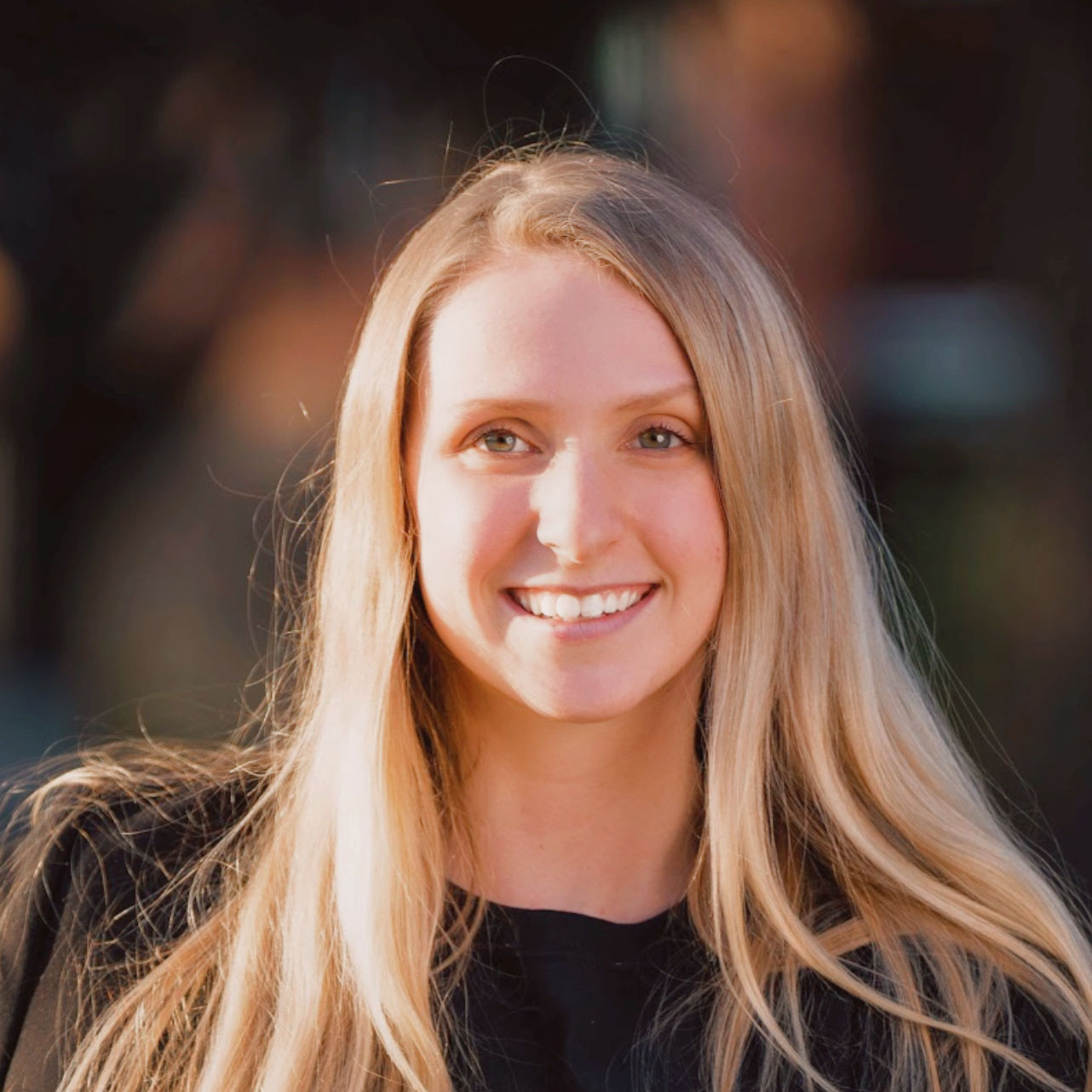
Hannah Young
Pronouns: She/Her/Hers
Year: Junior
Major: Public Policy and Administration
Position: Judicial Administrator
Why are you running?
I chose to run for Judicial Administrator because I believe that I could continue the work I’ve done so far this academic year, and continue to grow and be a part of greater changes in ASWOU. I can do this in the role of Judicial Administrator by providing just and honest feedback and decisions that uphold the Governing Documents and prioritize the needs and betterment of the student body.
What plans do you have for Western?
I hope to provide leadership experience while working together to promote ASWOU’s values and to prioritize student voices in order to best represent the entire student body. My goals are to work closely with both students and advisors to strengthen the relationship between all branches of student government in order to work to achieve goals led by student voices.
What qualifies you to run for this position and help make Western a stronger community?
I have already been serving in the role of Judicial Administrator since the beginning of Winter Term 2021 ⏤ in that time I have grown as a student leader and gained invaluable experience in ASWOU. This year has been a wild and challenging time for all students, including myself. In my role, I have worked to protect the student body’s ideals and values set forth by our Governing Documents, and gained experiences working with my own Judicial Board as well as numerous other students and groups on campus.
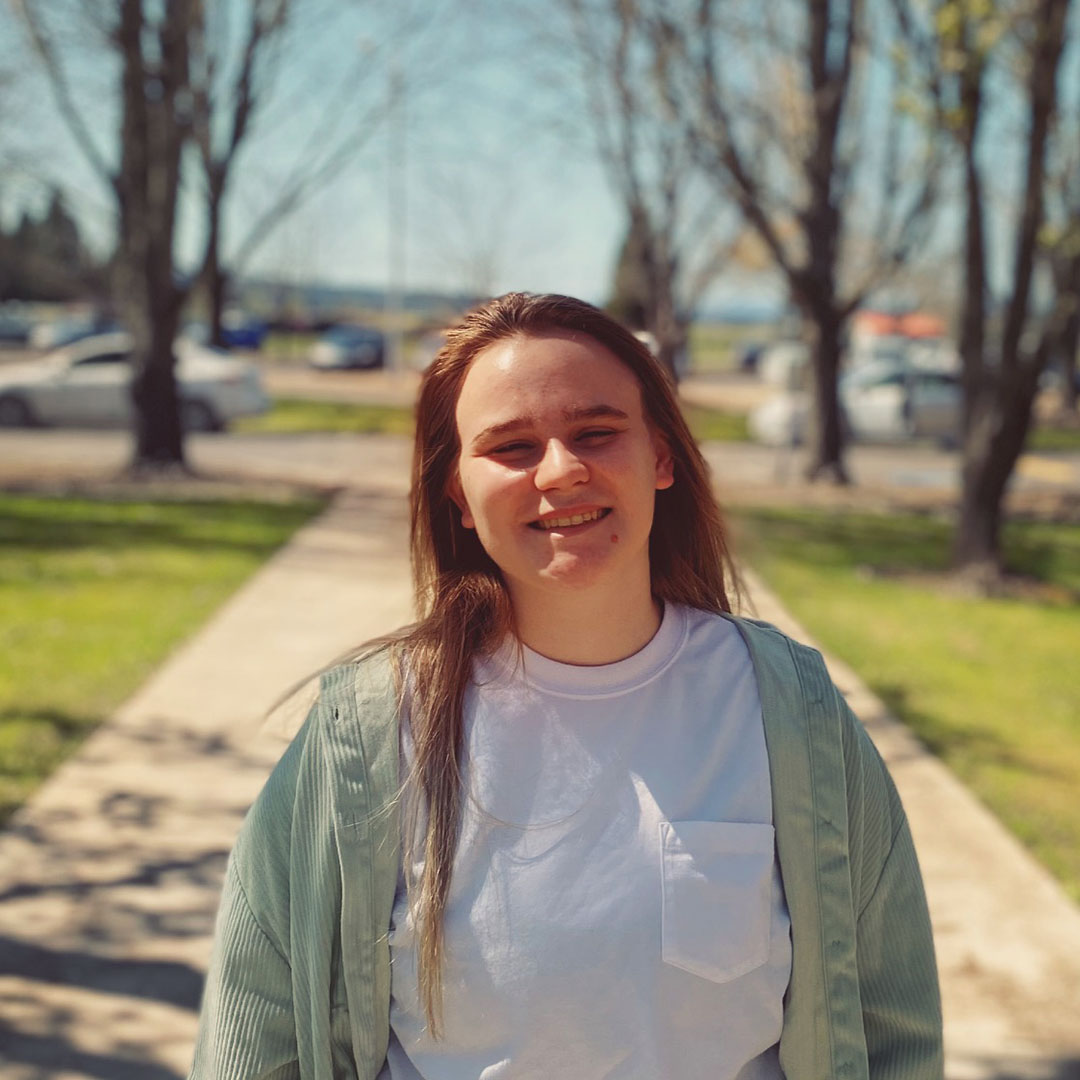
Kassidy Fegles-Jones
Pronouns: She/Her/Hers
Year: Sophomore
Major: Political Science
Position: Judicial Administrator
Why are you running?
I became interested in serving as a Judicial Administrator once I settled into college life and figured out where my ambitions and passions lie.
Truthfully, my first year at Western Oregon University, I did not get involved because I never saw myself being the person I am today. I was raised in West Salem which is a fairly conservative and predominantly white domain. I had a harder time adjusting in high school because I came out as openly gay my junior year, not to mention I was already known as the girl who had (two) moms. I experienced many things that ultimately led me to deter from getting involved in school clubs, organizations and taking chances. That perspective and lens changed when I began dating a woman of color. The experiences we faced led me to wanting to make change anywhere I could.
What plans do you have for Western?
I will use my platform and the privileges that I hold for the betterment of equitable representation on this campus, and ensuring that BIPOC and marginalized voices on this campus are listened to by students, faculty and the university administration. As a campus community, we need to do right by all of the students who chose to go here.
What qualifies you to run for this position and help make Western a stronger community?
Being appointed as the Director of Equity for the Associated Students of Western Oregon University has helped me step into who I’ve always been meant to be. It has given me the platform to create change and start conversations that are needed.
Within this role I work with clubs and organizations, state organizations and committees, as well as help put on campus programs focused on diversity and inclusion. This year I began testifying on bills and measures that would directly impact students and universities, as well as as Oregonians as a whole. I was appointed as a member of the University Diversity and Inclusion Advisory Committee, as well as worked on Statewide Cultural Competency Campaigns.
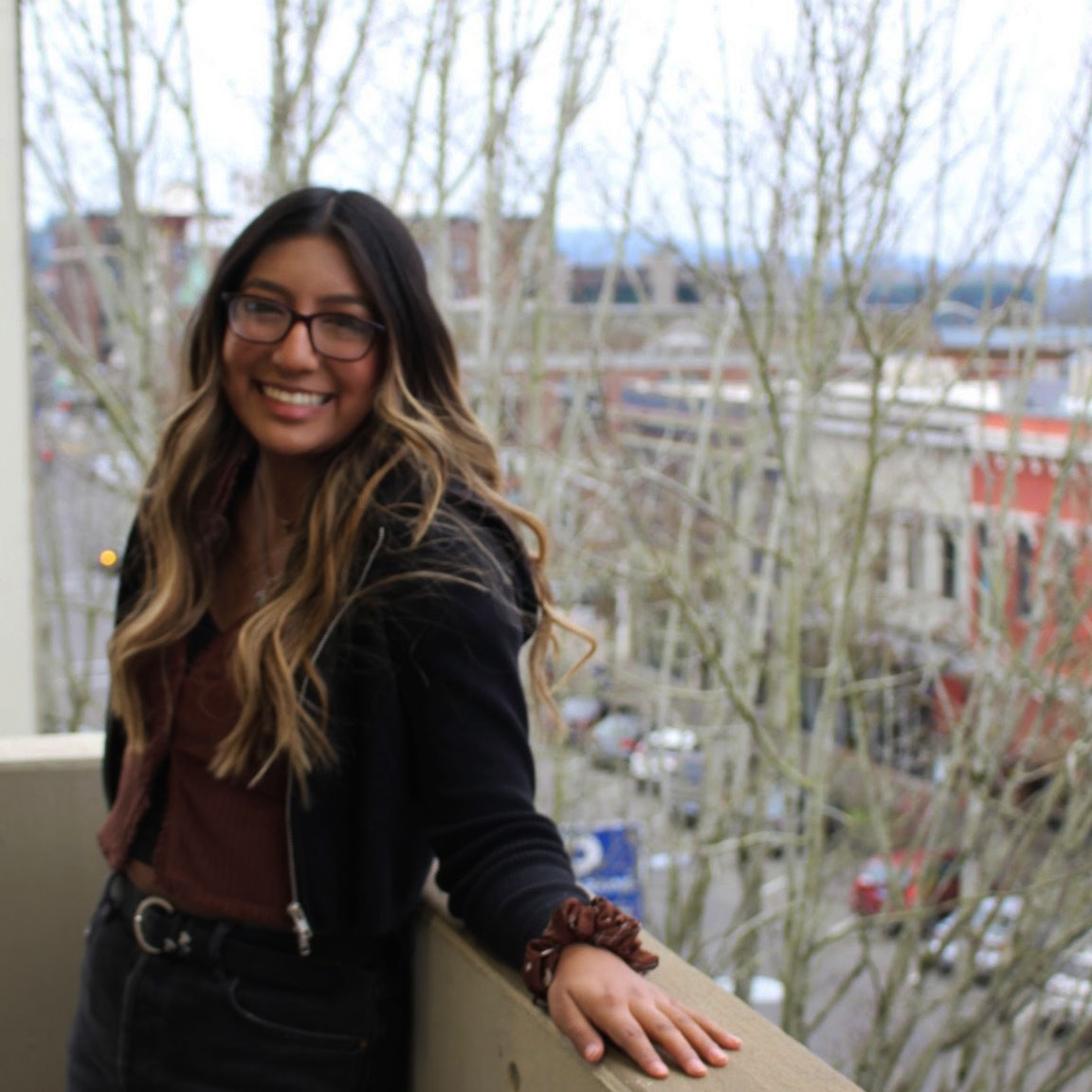
Maria Cuevas
Pronouns: She/Her/Hers
Year: Sophomore
Major: Early Childhood Education
Position: Justice
Why are you running?
I am running for this position to be an active student at WOU, but also to be a voice for students during hard times.
What plans do you have for Western?
I plan to be an honest and active member of the judicial board. I plan to listen to students and make sure that ASWOU’s laws and constitution are being upheld.
What qualifies you to run for this position and help make Western a stronger community?
During my time at WOU, I was secretary of the Unidos club. This club is a great example of making WOU a stronger community, with all the outreach they do and making sure that WOU students feel safe and accepted.
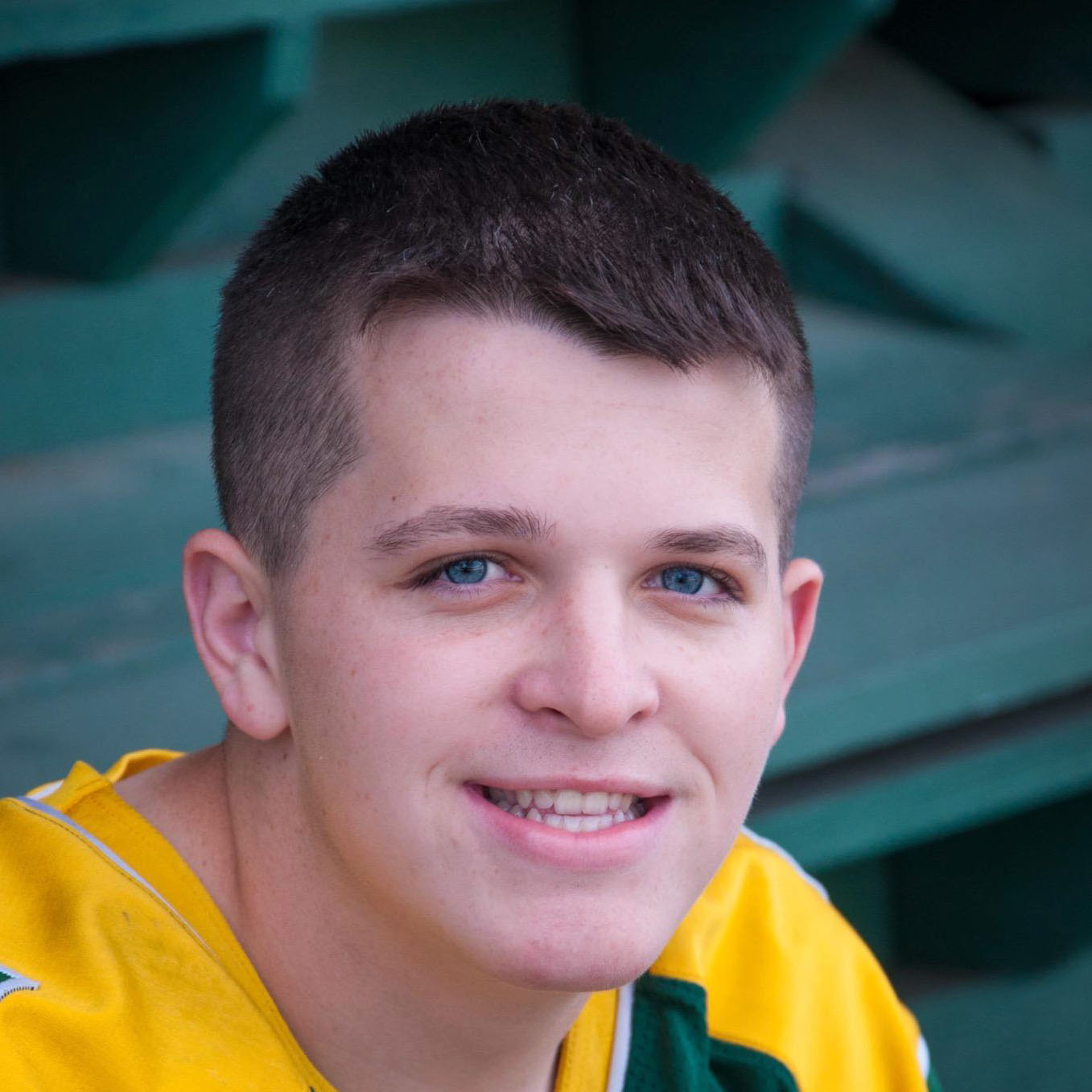
Austin Olin
Pronouns: He/Him/His
Year: Junior
Major: Political Science
Position: Justice
Why are you running?
I am currently the Vice-Chair of this year’s ASWOU Judicial Board, and I have found the judicial branch of ASWOU to be an important part of my life. It helps me connect to WOU’s student body while allowing me to contribute my judicial knowledge to ASWOU through making important decisions alongside my fellow Justices. I would love nothing more than to continue serving as a Justice in my final year at WOU.
What plans do you have for Western?
WOU is an amazing college, and part of what makes WOU so incredible is the hard work that ASWOU puts into their responsibilities. I plan to uphold the ASWOU Constitution and Bylaws while also keeping in mind the greater good of the WOU student body in my decisions as an ASWOU Justice. I believe that the Judicial branch of ASWOU is extremely important, and if I am elected as a Justice in the following year, I will continue to take my responsibilities seriously while contributing to the ASWOU Judicial Board to the best of my ability.
What qualifies you to run for this position and help make Western a stronger community?
As a political science major, I have continually studied judicial practices throughout the last three years of my life. Not only do I have experience as an ASWOU Justice, but I also plan to start a career in law after I graduate WOU. This is my passion, and therefore I believe I am extremely qualified for this position.
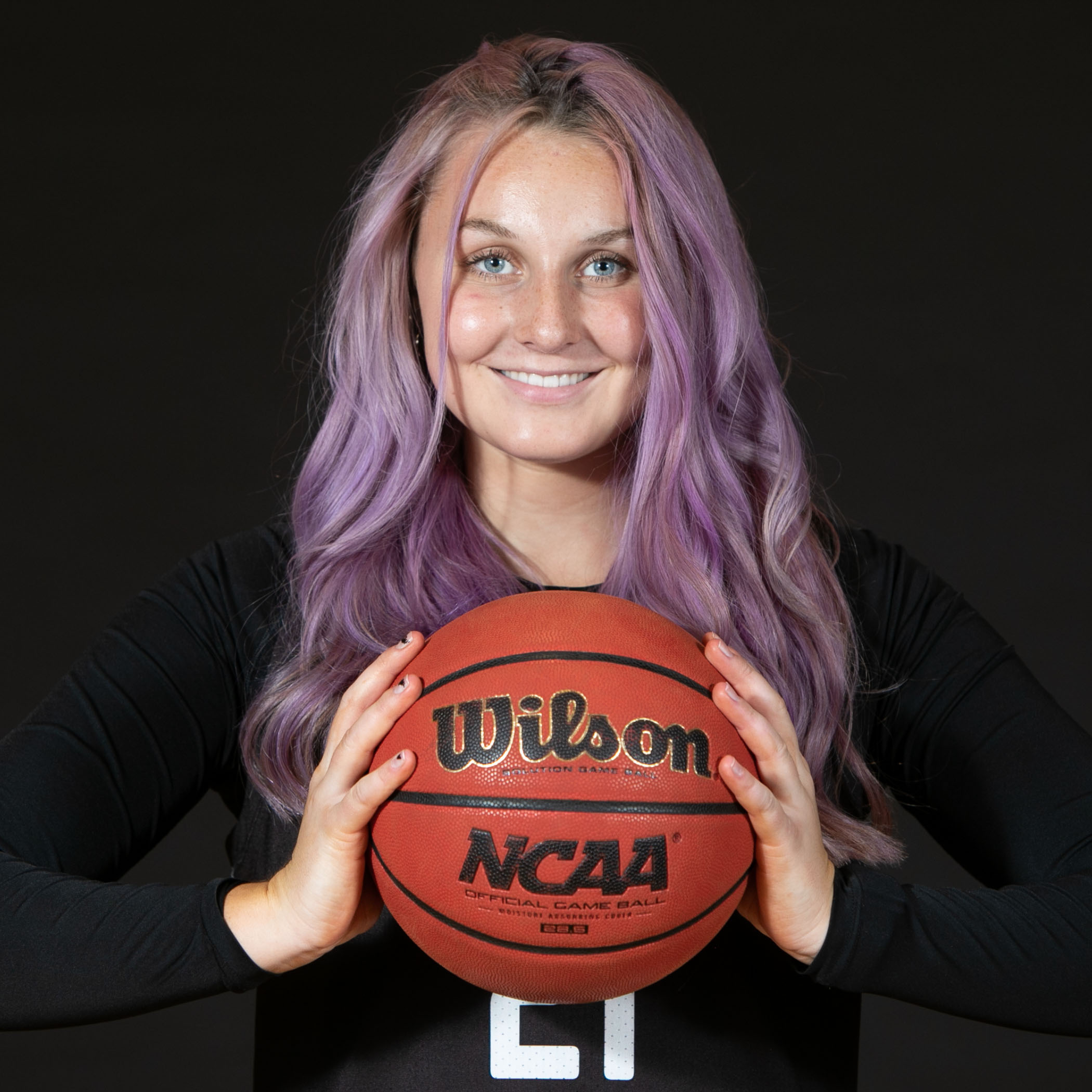
Caitlin Wheeler
Pronouns: She/Her/Hers
Year: First-year
Major: Criminal Justice
Position: IFC Member
Why are you running?
To engage more of the student body in the power of IFC and how Incidental Fees can work for them, overall in (an attempt) to make their experience here more exciting!
What plans do you have for Western?
Allocating funds where they’re needed (is) dependent on what the student body wants out of their experience at WOU. I want to educate more students on what their money is going towards.
What qualifies you to run for this position and help make Western a stronger community?
I am a natural-born leader with great listening abilities. I believe strength comes from the people and WOU is (a) developing community that needs more voices heard. As a potential IFC member, my focuses would be directed towards full frontal honesty of why Incidental Fees are collected and how they are redistributed amongst our programs here at Western.













